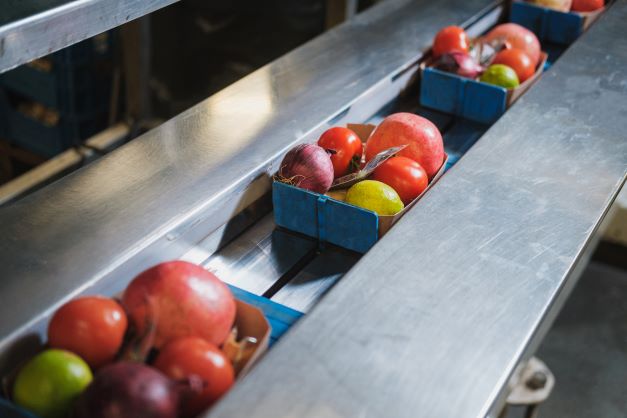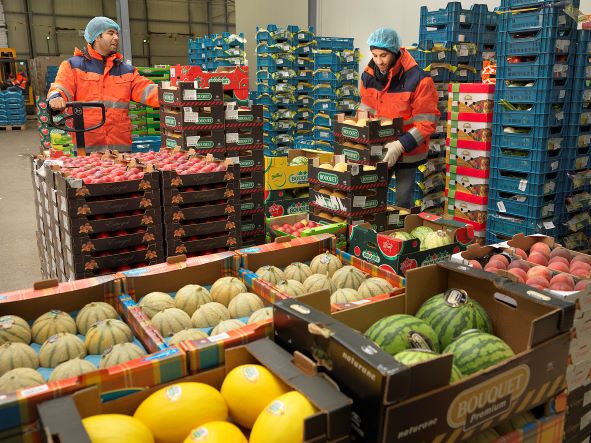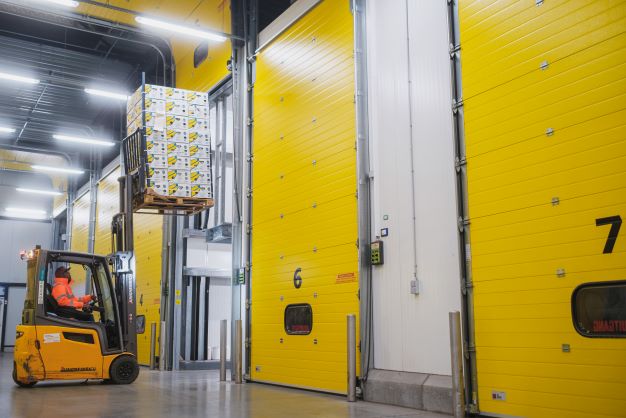Fork-to-field
At a time when many processors’ bottom lines are stretched thin, global fruit and vegetable processor Greenyard has adopted a new strategy to strengthen theirs.
Headquartered in Belgium, Greenyard Group is a global giant and one of the world’s largest suppliers of fresh, frozen and prepared fruits and vegetables. Their unique business model has not only made them a global powerhouse, but also helped them to weather the uncertainty of today’s marketplace.
Humble beginnings
Like many global companies, Greenyard has humble beginnings. Founder and co-CEO Hein Deprez always dreamed of being a farmer like his grandparents but had no experience and no land. In 1982, at just 20 years old, he decided to start a small mushroom farm on just one hectare (100 acres) of land in Belsele, Belgium. The following year, when he harvested his first mushroom crop he was immediately confronted with a new challenge: how to get his product into the hands of consumers as quickly and easily as possible. Deprez quickly realized that he didn’t like being in the hands of traders, nor did he like being so disconnected from consumers.
Deprez started to formulate a new vision which he calls “fork-to-field.” Rather than steering the market through the creation of a product, he worked to develop an integrated, production-driven approach that started with consumers.
“Everybody still today talks about farm to consumer,” said Deprez. “But no, it’s not field-to-fork, it’s fork-to-field.”
In light of this new vision, Deprez worked directly with retailers to supply products that consumers want. The integrated logistical chain he envisioned starts with the consumer, represented by the retailer, and moves back to the grower instead of vice versa. Over the years, a series of acquisitions — starting with Belgium’s largest mushroom trader — allowed the company to strengthen its model by creating a shorter, more efficient the supply chain, as well as by growing the capacity to offer a full range of fruit and vegetables. Today, it has helped Greenyard to better weather market volatility while reducing its environmental footprint.

“The power of Greenyard lies in our exceptional ability to act as a connector and closely collaborate with both ends of the food value chain,” explained Cedric Pauwels, Greenyard group communications director. “We build transparent and strong bonds with our customers — retailers, food industry and food service companies — by unburdening them as much as possible, and by directly connecting them to our global network of growers, to the extent we are vertically integrating with them.”
For Greenyard, everything revolves around shared objectives and transparency throughout the food value chain. “We are a connecting partner,” explained Pauwels. “We are, of course, only one part of the total chain, and we are convinced that we must all do this together to keep the chain sustainable in the long term, in order to guarantee fair value for the entire chain.”
Ultimately, Greenyard’s goal is to create attractive products that meet the demands of customers in over 80 countries. But to do this successfully, sustainability has to be the focus across the supply chain. To do this, Pauwels said Greenyard does everything from developing innovative products and new types of sustainable packaging to improving parameters such as ripening, quality control and logistics.
It’s no coincidence that Greenyard supplies a full assortment of the fruits and vegetables for many of the world’s largest retailers. Transparency was key to convincing a retailer of this size to switch to a single supplier rather than play suppliers off one another to get the lowest price, said Deprez. Transparency includes everything from how products are grown, stored, packed and shipped, and the costs associated with each step of the process.
“Transparency doesn’t leave room for speculation,” Deprez explained. “Speculation kills business.” Transparency, Deprez said, is the pathway to a more sustainable supply chain.
“Let us work to bring it into the market as fast as possible, as efficiently as possible, and to convince consumers when there is an abundance of certain products to consume it,” he said. “You adapt your price, you create the right flow, and you solve the issue of an overproduction.”

Improving life through plant-based food: A new vision
At the end of 2021, Greenyard developed a new strategy in line with a greater vision for 2030. The company’s ambition is clear: to improve life through plant-based offerings that enable healthier lifestyles and more sustainable food supply chains.
“We are a plant(-based) powerhouse, by nature,” said Pauwels. “For us, plant-based has only one clear definition: fruit and vegetables — the plants themselves — are our core products, in all their pure and natural power. That is why we stay close-to-crop with all our products, with very limited processing mostly.”
Inflation, labor challenges and market volatility
The fruit and vegetable market has always been complex, volatile and like any business today is subject to the impact of inflation, rising costs and environmental challenges. Greenyard’s integrated model, however, has provided stability, even in times of instability.
“We have been able to manage this well, through our unique approach and business model, which leads to long-term stability on the one hand, and the capacity for swift and agile responses when needed on the other hand,” said Pauwels.
Key to their success is openness and transparency, a mindset that allows them to anticipate and respond to changes and challenges quickly.
“In the current volatile context — climatic and macroeconomic — this is more important than ever,” said Pauwels. “It’s enabled us to navigate through these times, together, and to deliver on our promises.”
For instance, 75% of product in Greenyard’s fresh division is derived from integrated customer models, a model that allows the company to address changes in terms of pricing, production, and supply and demand, together with its partners in the chain.
No amount of integration can address labor challenges, though, and like other processors, Greenyard is confronted with a tight labor market. To address this issue, the company has put special focus on finding and retaining the right people for the job, and invests in on-the-job training programs. As an example, they even hired a dedicated Technical Talent Coordinator for one of its key sites.
“Despite a tight labor market, we have been able to fill in several important positions in the previous year, both in top management and crucial support functions,” said Pauwels.

Pauwels is convinced that part of their ability to attract and retain employees has to do with their long-term vision and the fact that Greenyard is a true purpose-driven company.
“We want to improve life, and we are right in the middle of what ever-more people expect — a focus on health and sustainability as key drivers for our business,” he said. “We are actively promoting natural, plant[-based] food products that are not just better for our health, but for the planet as well.”
Quick Facts:
- Company has three divisions: Fresh, frozen and prepared
- Fresh market: #2 in EU, #2 globally
- Frozen market: #2 in EU
- Prepared market: #5 in EU
- 9,000 employees
- Supplies the top 20 retailers in the EU
- Sales in more than 80 countries
- Turnover 2021-2022: €4.4 billion







